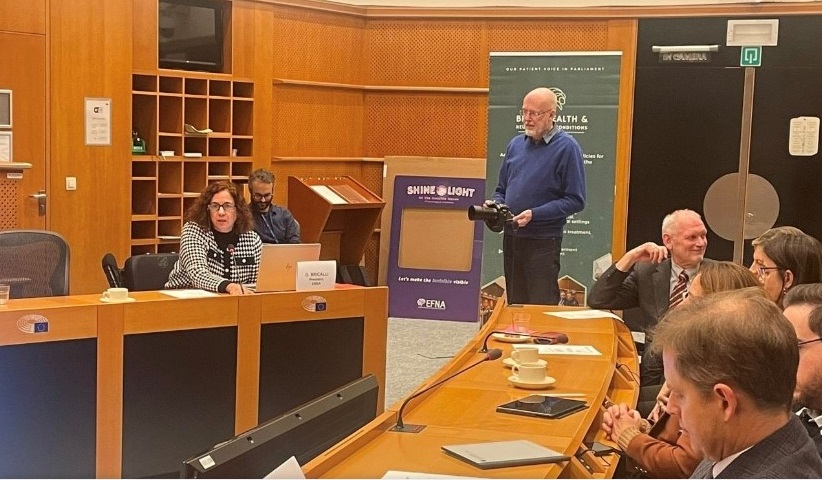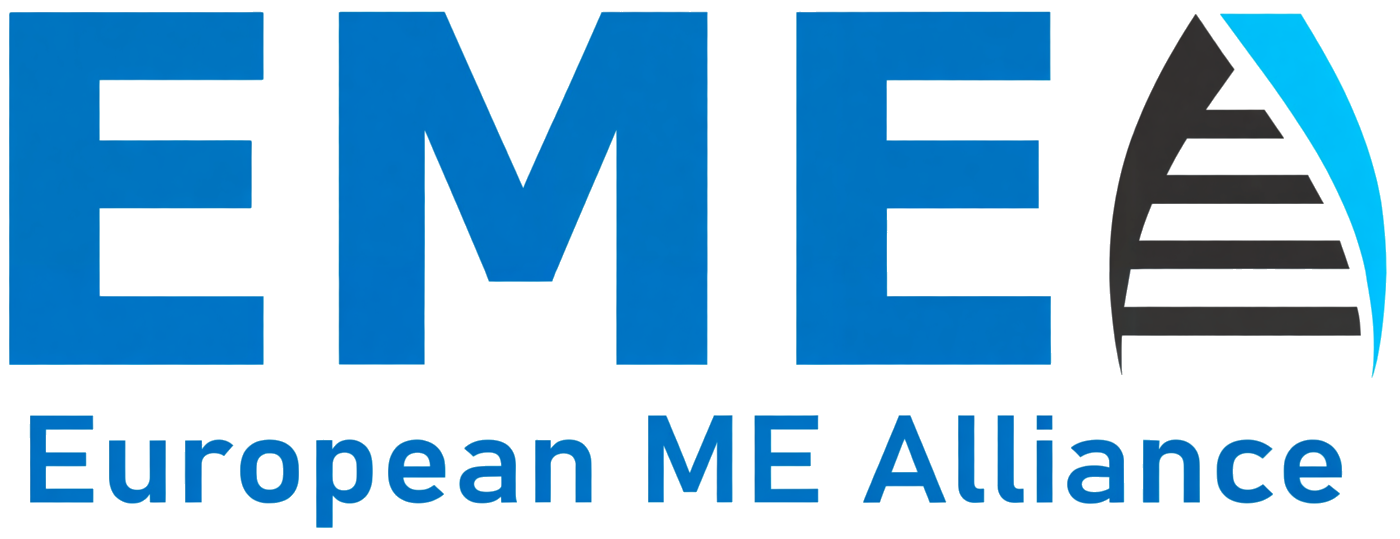European Parliament Meeting of the MEP Interest Group on Brain Health and Neurological Conditions November 2024
 On 12 November 2024, the European ME Alliance (EMEA) presented at the European Parliament's meeting of
the MEP Interest Group on Brain Health and Neurological Conditions in Brussels.
On 12 November 2024, the European ME Alliance (EMEA) presented at the European Parliament's meeting of
the MEP Interest Group on Brain Health and Neurological Conditions in Brussels.
The meeting, organised by the European Federation of Neurological Associations (EFNA) - of which EMEA is
a board member - focused on presenting the results of their survey on invisible symptoms in neurological
illnesses.
The meeting was hosted and chaired by MEP Romana Jerkovic, from Croatia, who is now encouraging MEPs
to work with patient groups to
understand how to address neurological conditions, such as ME.
EMEA was invited to speak due to the fact that 50% of the survey respondents were ME patients.
This statistic regarding the number of people affected by ME is alarming.
The European Parliament’s 2020 EU Resolution on ME/CFS reported there were 2 million people afflicted in Europe and 24 million diagnosed globally – numbers which they estimate to be 10% of those affected = 240 million sufferers worldwide.
 Gracemarie Bricalli, Chairman of EMEA, presented on ME, highlighting the stigma faced by people
with ME—including the false belief that ME is psychosomatic or non-existent—despite its recognition
as a neurological illness by the WHO since 1969 [1].
Gracemarie Bricalli, Chairman of EMEA, presented on ME, highlighting the stigma faced by people
with ME—including the false belief that ME is psychosomatic or non-existent—despite its recognition
as a neurological illness by the WHO since 1969 [1].
This misinformation leads to misdiagnosis, inappropriate treatments, and a failure to recognise ME as a severely disabling physical condition, resulting in major consequences for sufferers, including:
- Most countries lack ME specialists, resulting in non-ME specialists telling people that they are physically healthy or psychosomatic. Lack of ME specialists leads to misdiagnosis.
- Dependence of people with ME on family and friends for basic needs as they are unable to take care of themselves or their families.
- Economic hardship and social exclusion due to inability to work and frequently a lack of social or disability insurance benefits.
- Increased risk of suicide due to stigma and lack of legal protection or support.
In addition:
- Human rights violations occur due to disbelief, stigma, discrimination, and social barriers, leading to the denial of personal and financial assistance, and leaving people with ME outside legal protections, such as the UN Convention on the Rights of Persons with Disabilities.
- Universal health coverage is not is ineffective because the healthcare systems have little to offer people other than the management of some of their severely disabling symptoms.
- This is the result of the lack of research (and associated lack of research funding) to identify biomarkers and curative treatments.
- Many people’s disabilities are not recognised because they lack a diagnosis, and their disability is not recognised by their national competent authorities.
These are issues that EMEA brought to the attention of WHO Europe in its meeting with Dr. Hans Kluge, Regional Director, and with EMEA’s 4 statements delivered to the Region’s 53 Ministries of Health at RCPH74 in Copenhagen recently [2].
EMEA urged the European Parliament to implement the 2020 Resolution, including:-
- Additional funding for biomedical research.
- Information and awareness-raising campaigns among health professionals and the public to alert the population to the existence andsymptoms of ME.
- Specifically targeted training should be provided to raise awareness among public authorities, healthcare providers and officials in general.
The EMEA presentation can be found here [3].
The EFNA report from the meeting can be found here: [4]
References:
- WHO Europe Message for International ME Conference Week Delegates
- Overview of EMEA Activity at 74th session of the WHO Regional Committee for Europe, Copenhagen - October 2024
- Invisible Issues: Bridging the gap between the perception of neurological conditions and their true impact
- EMEA-MEP-Interest-Group-Brussels-2024-11-12
Last Update: November 2024

